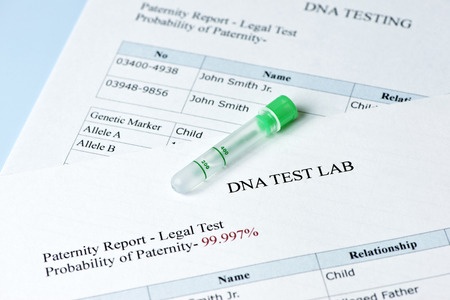
Florida Law has a mechanism for the establishment of paternity testing. Fla. Stat. §742.12 provides a framework for the evidentiary use of paternity testing. Importantly, Florida law requires a written sworn statement alleging the facts establishing the conflict or question regarding paternity. Fla. Stat. 742.12 also provides the framework for the Court’s evidentiary analysis by specifically acknowledging that test results shall be filed with the Court and are admissible evidence and that certain statistical probabilities carry evidentiary presumptions.
In order to qualify to obtain DNA evidence from the relevant parties in a Probate Proceeding you must establish a discovery request under Fla. R. Civ. P. 1.360, “examination of persons.” The rule provides as follows:
RULE 1.360 EXAMINATION OF PERSONS
(a) Request; Scope.
(1) A party may request any other party to submit to, or to produce a person in that other party’s custody or legal control for, examination by a qualified expert when the condition that is the subject of the requested examination is in controversy.
(A) When the physical condition of a party or other person under subdivision (a)(1) is in controversy, the request may be served on the plaintiff without leave of court after commencement of the action, and on any other person with or after service of the process and initial pleading on that party. The request shall specify a reasonable time, place, manner, conditions, and scope of the examination and the person or persons by whom the examination is to be made. The party to whom the request is directed shall serve a response within 30 days after service of the request, except that a defendant need not serve a response until 45 days after service of the process and initial pleading on that defendant.
Importantly, in order to be able to obtain discovery of a person in Florida the moving party must establish good cause for the examination and must make an affirmative showing that the condition as to which the examination is sought is really and genuinely in controversy and that good cause exists for ordering the examination. Doe v. Suntrust Bank, 32 So.3d 133 (Fla. 2nd DCA 2010). This good cause requirement is not an evidentiary burden, however the moving party must have some basis, via affidavit or otherwise, to put the paternity determination into question. Id. Finally, in determining the appropriateness of DNA testing the Court will consider the competing interests of the parties involved. This means that the Court will consider the privacy rights of the individuals at issue versus the rights of the parties seeking testing to have a complete investigation into the biological records. Ultimately whether DNA testing is appropriate in your estate or trust case may depend on a number of factors including family structure, estate planning documents and the positions asserted by the various interested parties. For a further discussion of your rights to biological testing or for a free consultation give us a call or submit a contact form.
Disclaimer: The information contained in this blog/website is for informational purposes only and provides general information about the law but not specific advice. This information should not be used as a substitute for advice from competent legal counsel as laws change and the facts in your specific case need to be analyzed.
















